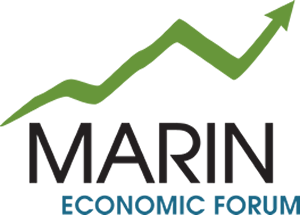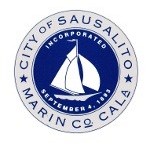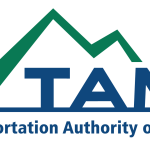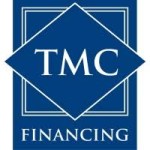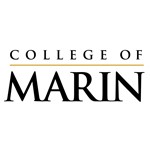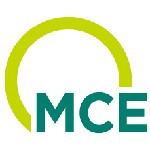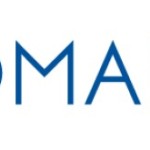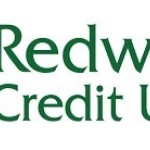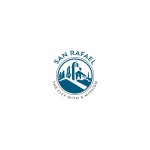MEF Newsletter August 2016
August 2016
by MEF CEO Jim Cordeiro
 Year of the Entrepreneur
Year of the Entrepreneur
North Bay iHub celebrates the second annual North Bay Innovation Week highlighting innovation in the North Bay the week of Sept 12 – 16, 2016. In collaboration with iHub, Marin Economic Forum is hosting our 4th annual Marinnovation event on September 13.
iHub is a collaborative of partners dedicated to building a robust entrepreneurial ecosystem in Sonoma, Marin and Napa counties thru the promotion of innovation as a community building and job creation tool by providing entrepreneurs with resources to enable them to build successful businesses.
The information economy has impacted the way we currently work and will continue to impact the way we work. This economy values knowledge workers and our future depends on the workforce development strategies towards a sustainable economy. There are many ways to discover your value in our economy. One question to ask is, “Could the vast majority of your work responsibilities be automated by a “kludged together” Excel script?”
America is the wealthiest country on earth because for most of our history we have followed the basic principles of economic freedom. Said differently, our wealth is not preordained; it is not coincidence and is it not guaranteed to endure. Instead, our wealth is the direct result of deliberate action to abide by certain economic principles, laws, and freedoms, many of which are now slipping away.
Some portion of the persistent unemployment in our economy is structural in nature: There is a gap between the skills of the unemployed and the capabilities that are being sought by employers with unfilled job openings. Much of the structural unemployment we see is being caused by rapid technological innovation and the evolution of our economy, which increasingly demands workers with technical skills and experience. Conventional thinking might look at this problem and say that this phenomenon happens constantly; as economies grow, skilled workers are in increasing demand. We now face a situation in which technological innovation is altering the economy so rapidly that many workers are unable to make the adjustment and gain the retraining necessary to evolve with it.
A simple thought experiment: Let’s pretend you won $10 million in the lottery and you could only do one of the following two things with your windfall:
Which option would you choose? There is no right or wrong answer here. Both options might benefit you, but only the second option is capable of being beneficial to the broader economy and society at large. New business formation and the creation, innovation, and job opportunities that come with it are the foundation of economic growth and prosperity.
by Dr. Robert Eyler
 Entrepreneurship and Sustainability
Entrepreneurship and Sustainability
Entrepreneurship and sustainability have a similar history in terms of how economists look at their definitions. Initially, we looked at entrepreneurship as “ideas”; economists think about four factors of production or inputs including labor, land, physical capital, and entrepreneurship. These ideas are paid profits, profits earned by the idea owner or ultimately the owner of a business that springs from intellectual capital (the idea). The entrepreneur’s role in our economy became more important as the economy began to monetize ideas more rapidly, and with large sums of money. There is a magazine with the title of “Entrepreneur” like “People” or “Time”; like sustainability, entrepreneurship has become a generalized term and no longer associated directly with its original meaning. Generally, we think of a smart person who started a business that was successful as an entrepreneur now. Economists still consider entrepreneurship an input to any and all businesses.
Successful businesses are the heart of every economy and all businesses began technically with an entrepreneur. We teach this subject throughout business school curricula; Dominican University of California has its MBA programs wrapped around the entrepreneur; Babson College has a satellite campus in San Francisco on the Embarcadero and Folsom Street, a college made famous for its focus on entrepreneurship as a core idea taught in its classes. The concept is everywhere, and everyone has some ideas about new products or innovations. Not all these ideas are commercial; television programs like Shark Tank provide a quick lens into the decision making that links financial markets to new ideas.
Marin County is a place where famous entrepreneurs have flourished. Lucasfilm, Fair Issac, BioMarin, EO Products, and many others started and grew here. Many lessons can be learned from these businesses growing from a couple ideas or concepts or products; many other businesses fail to make it here in Marin County, as in other places as starting a business is tough. Marin Economic Forum’s work is to stimulate entrepreneurs in Marin County and beyond to see Marin County as a place to do business. The history is here, but is the community support?
Marin County has been resistant to business growth generally, under the supposition that growth means change which has many “bads” that come with it. Ironically, climate change will likely be solved or mitigated by entrepreneurship: science made commercial to help people and the earth. Everything in your home, the restaurant meals you enjoy, the phone you may be reading this on right now is a by-product of supported entrepreneurship. Our community is supported by businesses and new ideas; without them, there is no change and nothing new, fewer jobs and societal devolution.
MEF Board Director, Laurie O’ Hara, Working Solutions
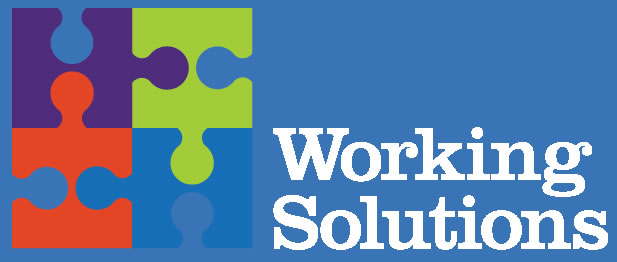 Congratulations to Working Solutions. On Friday, July 8, they funded their 400th microloan! The loan was made to Firebrand Artisan Breads, a local bakery in Oakland that is taking the Bay Area by storm with its signature breads and delicious pastries.
Congratulations to Working Solutions. On Friday, July 8, they funded their 400th microloan! The loan was made to Firebrand Artisan Breads, a local bakery in Oakland that is taking the Bay Area by storm with its signature breads and delicious pastries.
Working Solutions began in 1999 as a workforce development program under the auspices of TMC Financing. By 2005, the organization had commenced its own microlending program. Since then, they have provided over $9.8 million in lending capital to Bay Area businesses and perfected their holistic approach to community economic development by blending their lending services with business coaching and mentoring programs. In 2009, Working Solutions was officially designated a United States Community Development Financial Institution (CDFI).
MEF Board Director, Michael Leifer, Digital Candy
 Congratulations to Michael Leifer and the launch of Digital Candy. Digital Candy offers advanced artificial intelligence searches on the web to identify counterfeit products and misused logos, domains, images and video.
Congratulations to Michael Leifer and the launch of Digital Candy. Digital Candy offers advanced artificial intelligence searches on the web to identify counterfeit products and misused logos, domains, images and video.

September

Marinnovation — Tuesday, Sept. 13, 2016
4:30pm – 7:30pm, Marin Commons, San Rafael
visit marineconomicforum.org to register
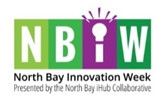
North Bay Innovation Week
September 12-16, 2016
Throughout Sonoma and Marin counties
visit: northbayihub.com
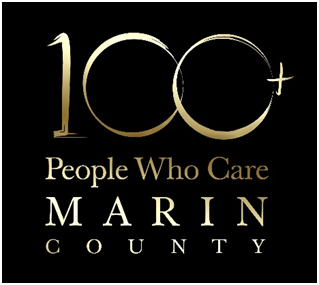
100MARIN — Wednesday, September 28, 2016
block party outside of Il Davide, San Rafael
6:00pm – 8:00pm
visit: www.100MARIN.org to register

MEF Newsletter July 2016
July 2016
by MEF CEO Jim Cordeiro
 BIO2016
BIO2016
The BIO International Conference returned to the birthplace of biotechnology, San Francisco, for 2016. Bio2016 attracted over 15,000 biotechnology and pharmaceutical leaders for one week of intensive networking and partnering meetings to discover new opportunities and promising partnerships.
The North Bay Life Science Alliance (NBLSA), in partnership with the Marin Economic Forum, held an important presence at the conference as part of the California Pavilion. NBLSA monitors trends in employment, financing, commercial space, and government support for life-science businesses in the NBLSA counties (Marin, Sonoma, Napa, Solano). Importantly, the North Bay is one of the global hubs of life-science businesses and finance in Northern California which, in turn, is a global hub for research and development in the field.
Recognizing the impact of the NBLSA region, the California Life Sciences Alliance (CLSA) asked our chief economist, Dr. Robert Eyler, to be the opening speaker at the California Pavilion.
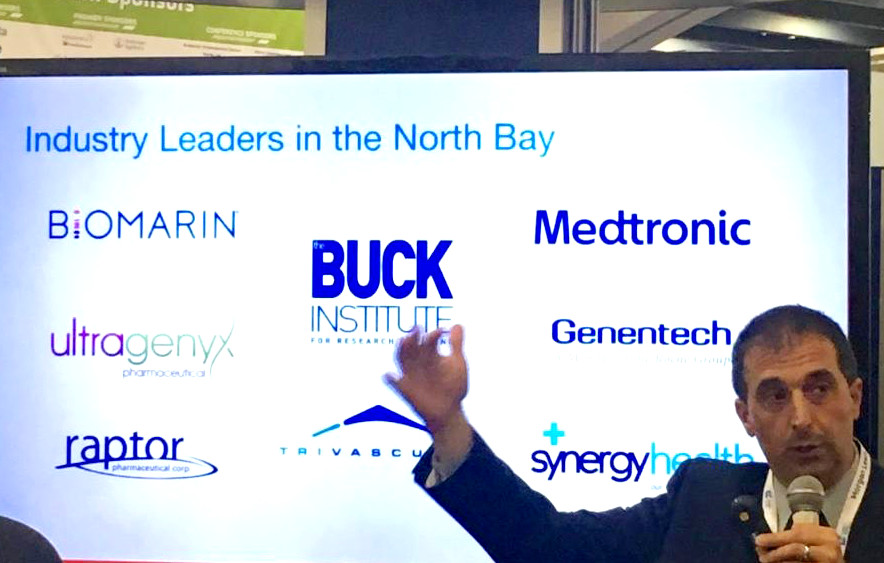
Title of the talk: North Bay Life Sciences Alliance | Growing and Moving in the North Bay
Following the completion of the conference, we co-hosted a morning session at the Buck Institute for media and senior executives who attended the event. Presentations were made by Chris Stewart, NBLSA COE and Chairman and Stelios Tzannis, Entrepreneur in Residence at the Buck Institute.
NBLSA Annual Report
NBLSA also recently published its annual report, produced by the Marin Economic Forum (MEF), which identifies 90 businesses involved in global life-science markets within the NBLSA counties, with as many as 470 headquartered and branch businesses stretching across different life-science sectors in the North Bay.
As of the second quarter of 2015, the NBLSA counties accounted for 10,000 jobs in the life-science sector. For the entire year 2015, researchers were awarded $13 million in National Institute of Health (NIH) grants, primarily from the Buck Institute for Aging Research in Marin County. Venture capital trends are moving toward a larger proportion of life-science investment in portfolios. In Marin County, biotechnology is second only to software as venture capital investment since 2009.
The Economic Value of Doing Good: BioMarin’s Impact on the Bay Area Economy
MEF chief economist Dr. Eyler has produced a case study for BioMarin, using the Company’s revenue, employment figures, and aggregate wage data to construct an economic model of its impact on the overall Bay Area economy.
Headquartered in San Rafael, BioMarin is one of the largest private-sector employers north of the Golden Gate Bridge. BioMarin’s presence leads to regional spending beyond its headquarters and operations in Marin County, and this ripple effect spreads to industries beyond biology research and manufacturing.
Another highlight from BIO2016 was the keynote address by Dr. Bennet Ifeakandu Omalu and Will Smith. Dr. Omalu is a Nigerian-American physician, forensic pathologist and neuropathologist who was the first to discover and publish findings of chronic traumatic encephalopathy (CTE) by examining American football players while working at the Allegheny County Coroner’s Office in Pittsburgh.
Dr. Omalu’s efforts to study and publicize CTE in the face of opposition by the National Football League were first reported in a GQ magazine article in 2009. The article was later expanded into a book, Concussion, and adapted into a film of the same name where Dr. Omalu, the central character, is portrayed by Smith. The movie’s production led to the creation of a foundation named after Dr. Omalu to advance CTE and concussion research.
by Dr. Robert Eyler
 Brexit and Marin County: Marin is Sound as the Pound?
Brexit and Marin County: Marin is Sound as the Pound?
As Brexit was passed by voters in the United Kingdom, many questions remain and new ones are being raised. Locally (and regionally), there may be repercussions for Marin County, which has several companies who compete on a global basis. The three primary issues Marin County residents and employers need to consider are: (1) housing and financial market performance; (2) shifts in tourism flows, and (3) trade links to the UK as either a marketplace or a gateway to mainland Europe.
The June 23rd vote in the United Kingdom (UK) is further proof that we are likely to remember 2016 as one of the most politically-focused years in this century, and perhaps in the last 25 years. While American politics are slowly building to a crescendo in November for the presidential election, the UK debated, placed on the ballot and voted to leave the European Union (EU). Because the pound sterling (the UK’s currency) is not part of the consortium of countries using the Euro, the unwind is more about how currencies are trading for each other and less about compliance. That unwind from trade and financial infrastructure based on EU membership will be a large enough headache.
The EU is a group of countries that came together from the European Common Market of the 20th century, and began the move toward a common currency (which non-Euro countries, including the UK, backed out of in the 1990s). These agreements begin with free trade among members, then customs unions (harmonizing trade laws inside and outside the membership), and then common markets (trade flows free for goods, financial capital and labor). The latter issue became paramount for the UK as the flow of migrant workers from other EU countries increased to take advantage of strong currency and high wages in the UK. The EU countries otherwise are a mixed bag of recovery stories since the last recession, and migration issues were exacerbated by refugees from the Middle East seeking a new life.
For Marin County, housing may be positively affected for two reasons. First, the outflow of capital toward the United States from the UK will further reduce pressure on interest rates; the Federal Reserve knows this and may now further delay interest rate increases to prevent the U.S. from becoming a magnet for UK wealth seeking the slightest of interest rate gains. Mortgage rates will remain stable and low, and housing demand will remain supported. Those residents with global investments may find losses from emerging markets that have ties to the UK (Indonesia and Malaysia are two examples); countries like Japan may be helped by this financially, though auto sales to the UK (and wine sales there for the North Bay region) may suffer.
For Marin County businesses, trade and labor connections to the UK may be delayed due to connections toward other EU countries changing. UK and US trade and financial relations otherwise should be little affected if there are no direct connections outside the UK. Business such as Autodesk and BioMarin may need to consider the size and scope of offices and business branches in the UK if used to service Europe more completely. This is a major theme for US businesses using the UK as a launching pad for Europe). This may slow progress in life sciences generally, especially if global uncertainty is exacerbated by this situation.
For tourism, we may see a flip of British tourism for Americans. Marin County residents may now plan trips to London they have delayed because the pound’s value falling suddenly provides a tax break for travelers. For UK travelers, they are facing a tax increase coming to Marin County, wine country, and the greater Bay Area. Businesses in Marin County, such as hotels and B&Bs and restaurants, may here fewer UK accents in the coming months, which could make for some marketing challenges given the summer has started. (DO WE KNOW IF UK TOURISM IN MARIN COUNTY IS SIGNIFICANT? THIS COULD BE A SUPPOSITION WITH LITTLE SUPPORT IN REALITY.)
Under the assumption that global uncertainty ebbs a bit after the tidal wave of opinions and concerns is done crashing over news channels, Marin County should be economically good after this is all said and done. The UK has multiple reasons to sort the aftermath out quickly, and then we can prepare for November and more political zaniness.
MEF Board Director Nina Gardner, 100MARIN/CORE
 100+ People Who Care: Marin County (100MARIN) is Marin County’s premier giving circle. The organization was created to increase the collective impact of its members’ annual dues, while helping to further the causes of deserving, local non-profits. Founded in January 2015, the group holds meetings twice a year, at which each attendee pledges $100. Five Marin-based non-profits then each make four-minute pitches, everyone votes for their favorite presentation, and the winner leaves with all of the pledge money. 100MARIN has been a fiscally-sponsored arm of the Marin Economic Forum since July 2015.
100+ People Who Care: Marin County (100MARIN) is Marin County’s premier giving circle. The organization was created to increase the collective impact of its members’ annual dues, while helping to further the causes of deserving, local non-profits. Founded in January 2015, the group holds meetings twice a year, at which each attendee pledges $100. Five Marin-based non-profits then each make four-minute pitches, everyone votes for their favorite presentation, and the winner leaves with all of the pledge money. 100MARIN has been a fiscally-sponsored arm of the Marin Economic Forum since July 2015.
Here’s how it works:
MEF Board Director, Brigitte Moran, CEO of Agricultural Institute of Marin (AIM)
 Brigitte is dedicated to realizing AIM’s vision of building a pavilion focused on celebrating the region’s agricultural roots, supporting artisan development and the success of our 500 local farmers and food purveyors, as well as educating and connecting communities to local agriculture.
Brigitte is dedicated to realizing AIM’s vision of building a pavilion focused on celebrating the region’s agricultural roots, supporting artisan development and the success of our 500 local farmers and food purveyors, as well as educating and connecting communities to local agriculture.
The FARM FIELD STUDIES PROGRAM brings children and young adults from around the Bay Area to local farms. The goal is to empower young people to make food choices that will positively impact their long-term health. Knowledge of where food comes from is a powerful tool for teaching good nutrition. Experiencing farms first-hand can inspire young people to become active participants in a sustainable food system as consumers, and even as producers of their own food.

September

